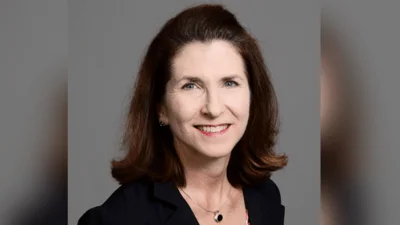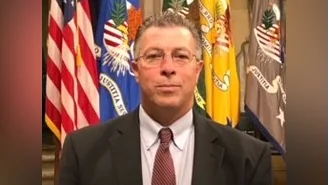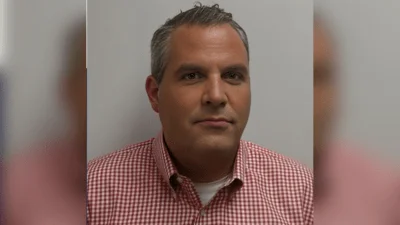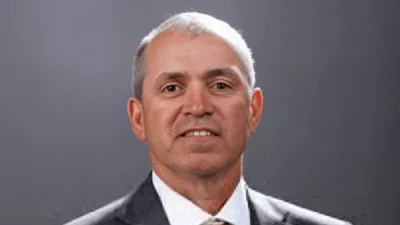The Congressional Record is a unique source of public documentation. It started in 1873, documenting nearly all the major and minor policies being discussed and debated.
“Whistleblower Program (Executive Calendar)” mentioning Chuck Grassley was published in the Senate section on pages S985-S986 on March 1.
Of the 100 senators in 117th Congress, 24 percent were women, and 76 percent were men, according to the Biographical Directory of the United States Congress.
Senators' salaries are historically higher than the median US income.
The publication is reproduced in full below:
Whistleblower Program
Mr. GRASSLEY. Mr. President, I want to compliment that the Commodity Futures Trading Commission operates a highly successful whistleblower program. As one of the Senators who led the effort to establish that whistleblower program back in 2010, I am proud of what this program has accomplished.
Since the Commission issued its first whistleblower award in 2014, whistleblowers have helped the Agency root out waste, fraud, and abuse in the commodities trading industry and has recovered nearly $950 million. That is a very good reason to compliment the Commodity Futures Trading Commission. That is a lot of restitution for harmed investors. It is also a lot of money going to the U.S. Treasury and to the American taxpayers.
Now, if Congress doesn't act quickly, all of that progress could come to a swift and sudden halt.
Several months ago, the Commission contacted my office to tell me that its whistleblower program is facing the prospect of a sudden cash shortage--one that could require it to furlough staff and even close down its operations.
The reason for this potential shortage isn't that the whistleblower program has wasted or mismanaged funds or that it hasn't been doing its job. It is just the exact opposite. Whistleblowers have been approaching the Commission to report actionable claims of wrongdoing in far greater numbers than before, and its whistleblower program has grown at a much faster rate than Congress expected when we created it in 2010.
Last year, the Commission issued a single whistleblower award for approximately $9 million. In the past, it has given out awards for as much as $30 million. Remember, this is money given out to find out about fraud so people can be punished, bringing money into the Federal Treasury.
As a result of these successes, in the near future the Commission faces the possibility of having to pay out several large whistleblower awards in close succession. Now, if that happens, the whistleblower program could run short of having the cash on hand that it needs to pay these awards and other office operating expenses. Again, this is not an issue of bad management. It just means that the program works better than we thought when we enacted it in 2010.
By law, the Commission is only allowed to keep a certain amount of cash on hand to pay out awards, and that amount is capped under existing law at $100 million. Because Congress expected the program to remain relatively small, which it has not, it set the cap for the Consumer Protection Fund lower than the cap it has set for larger whistleblower programs, such as the one at the Securities and Exchange Commission.
The Consumer Protection Fund is also used to pay the operating expenses of the Whistleblower Office--in other words, the employees that follow up on these fraudulent claims.
Increasing the cap will ensure that the Commission can keep enough of the proceeds from the fines it collects on hand to pay whistleblower awards and also to ensure that the program itself doesn't run out of money.
In 2019, I introduced the Whistleblower Programs Improvement Act, which increased the cap on the fund and made several additional improvements to the program, including provisions that would allow the Commission greater flexibility to share information with law enforcement.
I did this because I realized that as the awards became bigger and more frequent, it was only a matter of time before the Commission would run into trouble. A year later, my prediction came true, and the Commission itself notified me of their impending money problems--those same money problems I am talking about.
I introduced a bipartisan bill, along with Senators Hassan, Ernst, and Baldwin, in December, just a few months ago, to quickly address this problem. I worked with then-Chairman Roberts and then-Ranking Member Stabenow to include language that would have made the most critical updates for the program in last year's omnibus. These updates would have ensured that the Whistleblower Office could keep enough funds on hand to pay upcoming whistleblower awards and continue to fund the operation and to pay for staff.
What often happens around here is that this effort, unfortunately, also hit a roadblock, and the language wasn't included by the House of Representatives. Now, 2 months have passed since then and a matter that was already urgent in December has become even more critical right now.
The Commission told my office they have now completely stopped work on four cases, and these four cases potentially would have large awards. And if they get these large awards, it could bankrupt the fund. It is now a conflict of interest for staff who are still paid to even work on those cases because they know if they were to approve the large awards, it could mean putting themselves out of a job. That is totally unacceptable. Whistleblowers shouldn't have to wait just because Congress has been dragging its feet on this issue. That is why I reintroduced my bill and ask my colleagues to support this legislation to fix the cap and to protect this very successful whistleblower program.
This is a stand-alone bill, a very short and simple bill. It increases the cap on the Customer Protection Fund from $100 million to
$150 million and requires that funds needed for the operating expenses of the Whistleblower Office be held in a separate account to ensure that the Whistleblower Office will have the resources it needs to continue employment of staff while the amount in the Customer Protection Fund builds to a higher level.
Allowing this successful Whistleblower Office to close simply because it is doing its job--a job well done--is unacceptable to me, and I hope it is unacceptable to the other 99 Members of this Congress. We ought to be able to get this bill passed quickly so that we can keep this successful whistleblower program going to protect the customers. It ought to be unacceptable, then, to every Member of this Congress. It is important that we act now to ensure that this doesn't happen. That is why I urge my colleagues on both sides of the aisle to support this bipartisan legislation.
I yield the floor.
The PRESIDING OFFICER. The Senator from Indiana.
Unanimous Consent Request--S. 294
Mr. BRAUN. Mr. President, today I rise to ask that the Senate grant unanimous consent to pass a bill that restores parents' rights to be part of medical decisions for their children.
More than 70 percent of Americans agree that parents should have the legal right to stop an abortion from being performed on their minor child. Consequently, more than half of the States have laws on the books that require some form of parental notification. Unfortunately, the State laws cannot be fully enforced when children travel over State lines or abortion providers assist minors in circumventing State laws.
More troubling, evidence has surfaced in recent years that abortion clinic staff deliberately fail to report suspected cases of statutory rape as required by Federal law. In some cases, staff even help to hide these crimes from parents and law enforcement
An undercover operation revealed that a disturbing 91 percent of Planned Parenthood employees agreed to help conceal an instance of statuary rape when a caller posing as a 13-year-old girl indicated she wanted to conceal a relationship with a 22-year-old boyfriend by getting an abortion. This too often means that children seeking abortions are left alone and vulnerable when making a very difficult decision.
My bill, the Parental Notification and Intervention Act, would combat the troubling trend that cuts parents out of medical decisionmaking. The bill prohibits an abortion provider from performing an abortion on an unemancipated child without written notification to parents. This creates legal protections for parents and ensures that children are not left alone or unsupported when making difficult medical decisions with long-lasting consequences.
Mr. President, as if in legislative session, I ask unanimous consent that the Committee on the Judiciary be discharged from further consideration of S. 294 and the Senate proceed to its immediate consideration. Further, I ask unanimous consent that the bill be considered read a third time and passed and that the motion to reconsider be considered made and laid upon the table.
The PRESIDING OFFICER. Is there objection?
The Senator from Hawaii.
Ms. HIRONO. Mr. President, reserving the right to object, the majority of the minors who become pregnant tell their parents about the pregnancy even when they plan to seek an abortion. But it is not always possible or even advisable that a parent be informed. For some minors, telling their parents that they were sexually active, let alone pregnant, can lead to physical abuse. It can lead to those minors being thrown out of their homes. One study found that 45 percent of young people who did not seek advice from their parents about a pregnancy experienced significant negative consequences--such as punishment, abuse, being forced out of their home--when their parents found out.
By requiring that parents of minors seeking an abortion be notified and setting the bar for an exception to this rule at a nearly insurmountable level, this bill ignores this reality of what might happen to these young people. In doing so, it turns an already difficult decision for a young person into an almost impossible one. It puts minors' health and safety at risk while doing nothing to strengthen families.
This is made clear by the fact that all of the major medical organizations, including the American Medical Association, the American Academy of Pediatrics, the Society for Adolescent Medicine, the American College of Obstetricians and Gynecologists, and the American Public Health Association--all of these groups oppose laws like this one that mandate parental involvement in minors' abortion decisions.
Let's be clear. This is yet another partisan attack on a woman's constitutionally-protected right to choose. It is completely unnecessary and distracts from the important work the Senate is doing right now to deliver urgently needed COVID relief.
For these reasons, I object.
The PRESIDING OFFICER. The Senator's objection is heard
____________________





 Alerts Sign-up
Alerts Sign-up